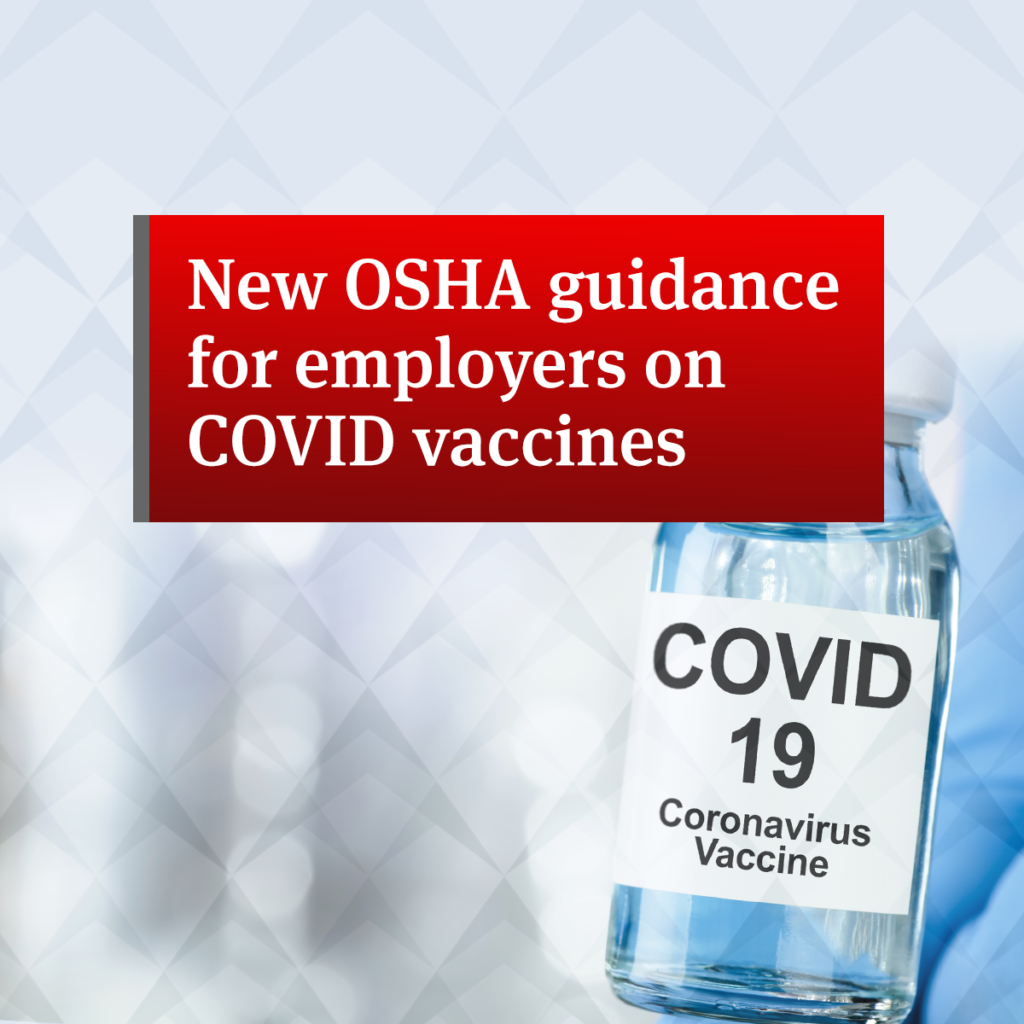UPDATE: Supreme Court Halts Biden Policy Creating COVID-19 Vaccine or Test Rules for U.S. Businesses
Read full story from PBS here.
Related statement from OSHA’s Emergency Temporary Standard (1/13/22)
Remarks by President Joe Biden on the Supreme Court’s Decision
OSHA’s Nationwide Vaccine Mandate on Hold (originally published 11/17/21)
Employers with more than 100 nationwide workers were bracing for the impact of a federal mandate requiring vaccination or weekly COVID testing. On November 4, the Office of Safety and Health Administration (OSHA) issued the Administration’s Emergency Temporary Standard (ETS). Since then, a court order has temporarily stayed the regulation and OSHA will not enforce the federal mandate… for now.

Originally, employers were expected to adapt to a tight timeline to implement a masking requirement by December 5 for unvaccinated employees and impose the vaccine or testing mandate by January 4. The entire rule issued by OSHA spans 490 pages, but this fact sheet provides an easier read. Any employer with a nationwide workforce of at least 100 is affected, including part-time and seasonal. Only employees who work remotely or outdoors can be excluded. Contractors or temporary workers assigned from a staffing agency are not counted; franchisors and franchisees will be considered separate entities.
Meanwhile, the mandate faces a legal suit challenge and the U.S. Court of Appeals for the Fifth Circuit ordered OSHA to “take no steps to implement or enforce the mandate “until further court order.” The rollout now hinges upon court action.
For now, employers may wish to become familiar with implementation standards already established. This includes having a written policy in place about the ETS for employees to access. It must include requirements, vaccine information, and penalties for knowingly falsifying documents. Employees are to receive up to four (4) hours of paid time off per vaccine dose, which includes time at work to make appointments, complete paperwork, travel to/from vaccine sites, and post-vaccination monitoring. Employers may not require employees to use existing leave hours accrued for this purpose. Paid sick leave is a requirement too so employees can recover from side effects following a primary vaccination dose. Employers may reasonably set a cap of two days for this purpose but can’t make anyone borrow against unearned PTO.
White House officials say the ETS preempts state or local laws, including laws that ban or limit an employer’s authority to require vaccination, masks or testing. Until we learn otherwise, weekly testing mandates slated to begin January 4 are on hold. This is good news for any unvaccinated employees who must bear the cost of testing unless the employer authorizes a medical or religious accommodation. For a deeper dive into the ETS, view the FAQs on OSHA’s webpage.

